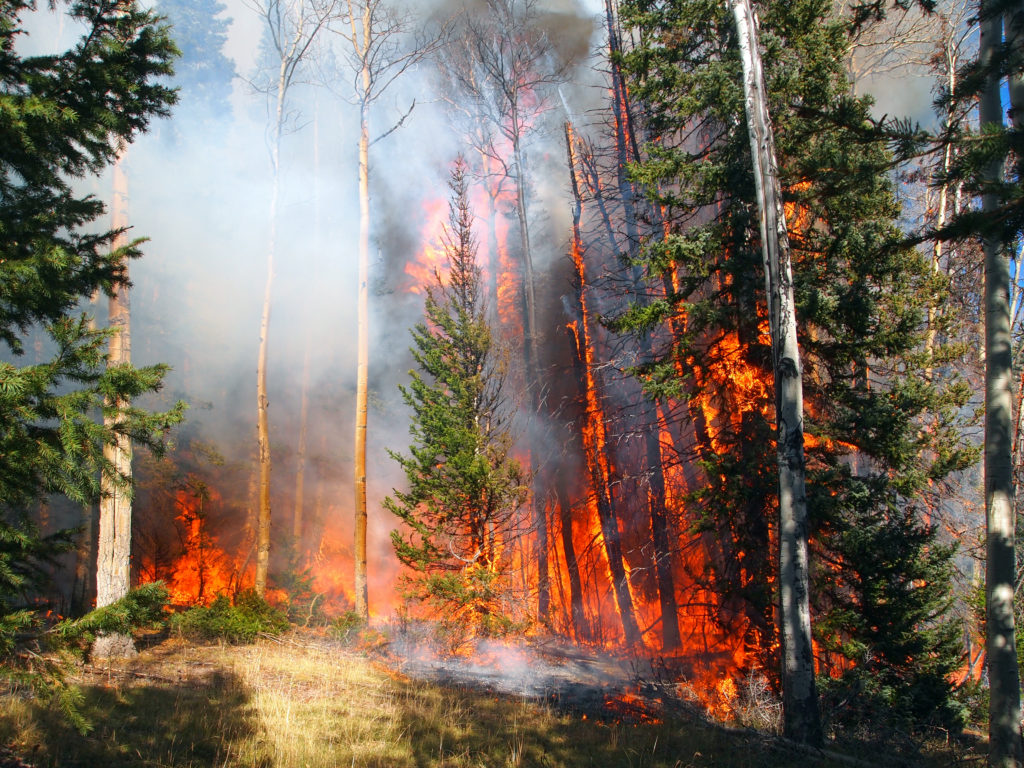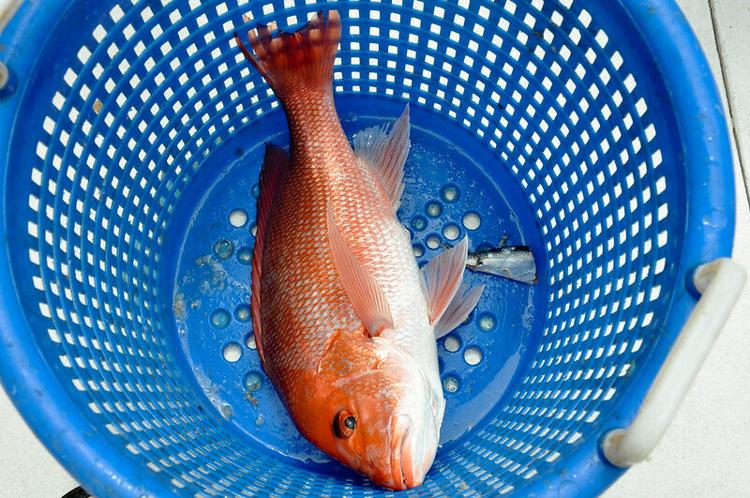Visitors asked to take precautions with fire at select State Parks

Ahead of Labor Day weekend, the State Parks Division of the Alabama Department of Conservation and Natural Resources (ADCNR) has announced that visitors to select State Parks in the southern portion of the state should take extra fire precautions because of dry conditions. The five state parks are Gulf, Meaher, Bladon Springs, Roland Cooper, and Frank Jackson. Visitors and overnight guests are asked to take extra precautions with campfires and barbecue grills. Greg Lein is the Director of ADCNR’s State Parks Division. “As park guests plan for the upcoming Labor Day holiday, we ask that they keep the recent hot and dry conditions in mind when it comes to campfires and grilling,” said Director Lein. “Those conditions have increased the risk for wildfires at state parks in south Alabama. We encourage park visitors and overnight guests to be very cautious with campfires and grills during this period until we get some much-needed rain and the temperatures moderate.” The additional fire precautions at Gulf, Meaher, Bladon Springs, Roland Cooper, and Frank Jackson state parks include the following: · No campfires outside of designated day-use picnic areas, campgrounds, or developed recreational areas. · Barbecue grills and gas-fueled stoves are permitted only in designated day-use picnic areas, campgrounds, or developed recreational areas. · Do not use barbecue grills or gas stoves in areas that can scorch, burn, or damage lawns or picnic tables. · Place barbecue grills a minimum of 15 feet away from any flammable material such as grass, weeds, wood chips, brush, or park facilities. · Do not leave a campfire or grill unattended. · Completely extinguish all burning fuel, such as wood or charcoal, before disposing of it in an existing fireplace, fire pit, or barbecue grill. If you have questions about the additional fire precautions at Gulf, Meaher, Bladon Springs, Roland Cooper, and Frank Jackson state parks, please contact the main offices of the individual parks. The recent forest fire in Maui, Hawaii, has the highest death toll from a forest fire in American history, and bodies are still being found. Park visitors should also monitor each state park’s social media accounts for updates on fire precautions and restrictions. Visitors should also be aware that there have been two human cases of Eastern Equine Encephalitis (EEE) in Baldwin County recently, including one where a little girl died. Since EEE is spread by mosquitos, the Alabama Department of Public Health is advising everyone to take precautions against mosquito bites. Wear chemical repellants and always wear long-sleeved shirts and pants. To connect with the author of this story or to comment, email brandonmreporter@gmail.com.
Red snapper season continues through July 4

On Thursday, the Marine Resources Division (MRD) of the Alabama Department of Conservation and Natural Resources (ADCNR) reminded Alabamians that state waters and federal waters will be open to private and state-licensed charter vessel anglers for red snapper harvest on Tuesday, July 4, 2023. Scott Bannon is the Director of the Marine Resources Division. “The Fourth of July is traditionally a day when families spend time together on the water,” said MRD Director. “We are thankful to be in a position to provide the opportunity for people to catch red snapper this Independence Day. A closing date for the season will be announced when the 2023 quota is anticipated to be met. Anglers are encouraged to continue reporting their harvest through Snapper Check and participate in the dockside surveys conducted by MRD staff. Accurate reporting helps us best manage Alabama’s red snapper season.” Every fisherman is required to report any red snapper to ADCNR through the Snapper Check system. This includes shore, private vessels, and state charter angler landings. Red snapper landings updates are posted weekly during the season on ADCNR’s Red snapper page. As of June 26, 2023, anglers have already harvested 361,314 pounds of the state’s 2023 federal quota of 591,185 pounds. Fishermen have less than 130,000 pounds to harvest before government authorities will have to shut red snapper fishing down for the remainder of the year. Alabama anglers have harvested 130,000 pounds of red snapper in just the last 17 days – well ahead of last year’s pace, where the quota was never reached. If this is a big fishing week, red snapper harvesting could likely be shut down before the middle of July. The Alabama private angler quota for 2023 was set by the Biden Administration’s National Oceanic and Atmospheric Administration (NOAA) Fisheries division. The dramatically lower red snapper quota is a result of changes concerning the difference between state and federal harvest landing systems. The Marine Resources Division hopes that there will be an increase to Alabama’s 2024 red snapper quota due to an increase in the annual catch limit for Gulf red snapper that is currently in the rulemaking process at NOAA Fisheries. Chris Blankenship is the Commissioner of ADCNR. “Even with the changes to Alabama’s quota this year, we are having a great red snapper season,” said Commissioner Blankenship. “Adding the Fourth of July holiday for red snapper fishing will be good for families and friends celebrating our freedoms on the water that day in coastal Alabama.” Anglers are reminded that the daily bag limit is two red snapper per person, per day, with a minimum size limit of 16 inches in total length. To take any fish beyond the two-fish limit or any red snapper smaller than 16 inches is strictly illegal. To lawfully fish for red snapper – or any other saltwater fish – you must have a valid Alabama Saltwater Fishing License. Anglers have numerous fish that they may legally harvest in state and federal waters if the red snapper limit is reached. NOAA is holding a meeting of the Gulf of Mexico Fishery Management Council on August 14 – 17 in Austin, Texas. The Council will be in Gulf State Park in Gulf Shores, Alabama, on April 8 – 11. To connect with the author of this story or to comment, email brandonmreporter@gmail.com.
Alabama state waters open for shrimping on June 1

The Marine Resources Division (MRD) of the Alabama Department of Conservation and Natural Resources (ADCNR) announced that shrimp season will open on Thursday. As of 6 a.m., Thursday, June 1, 2023, all inside waters not permanently closed by law or regulation will open for shrimp harvesting. This includes Mobile Bay, Bon Secour Bay, Mississippi Sound, Perdido Bay, Arnica Bay, Wolf Bay, and Little Lagoon. Licensed live bait dealers holding a permit for Special Live Bait Areas are reminded that an area beside the Battleship Alabama south of the Tensaw River Bridge, north of a line from the north point of Pinto Pass (N30 40.755 – W88 01.124) to the northwest edge of Goat Island (N30 40.124 – W88 00.784); and west of a line from the northwest edge of Goat Island to the eastern end of Tensaw River Bridge (N30 40.955 – W88 00.444) will be open from one hour before sunrise until sunset from June 1-December 31, 2023. Closing state waters for a week is an annual occurrence to allow the young shrimp time to grow. Shrimp are often used as bait for other marine species, such as fish. Many marine species rely on shrimp for their sustenance, Special Live Bait Area Permits may be purchased only at the MRD office on Dauphin Island. For more information, call (251) 861-2882. Shrimp, crabs, lobsters, and crayfish, are a species of invertebrates known as decapods. There are about 2,000 species of shrimp in the world. There are 15 to 22 species of shrimp in Alabama waters. Three of these are harvested by humans: the brown shrimp, the white shrimp, and the pink shrimp. The brown shrimp is by far the most abundant. The pink shrimp is the least abundant of the three. Alabamians harvest approximately 20.5 million pounds of shrimp with an estimated dockside value of $45 million. Alabama is a sportsmen’s paradise with harvestable quantities of shrimp, oysters, crayfish, croaker, flounder, red snapper, drum, whiting, sea bass, deer, squirrel, rabbit, turkey, crappie, largemouth bass, smallmouth bass, nutria, hogs, coyotes, crows, alligators, cranes, ducks, geese, raccoons, and much more. Alabamians can hunt and fish for something legally year-round. Alabama residents and guests outside the state can purchase saltwater, freshwater, and hunting licenses. All proceeds from the sale of the licenses go toward wildlife conservation. The Alabama Department of Conservation and Natural Resources promotes wise stewardship, management, and enjoyment of Alabama’s natural resources through four divisions: Marine Resources, State Lands, State Parks, and Wildlife and Freshwater Fisheries.ADCNR promotes wise stewardship, management, and enjoyment of Alabama’s natural resources through four divisions: Marine Resources, State Lands, State Parks, and Wildlife and Freshwater Fisheries. To connect with the author of this story or to comment, email brandonmreporter@gmail.com.


